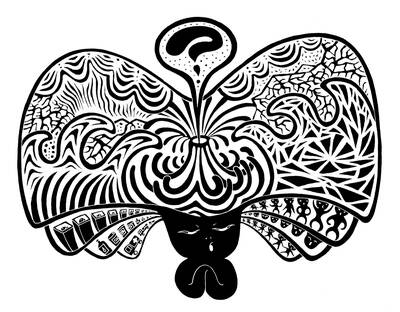As China repeatedly threatens Taiwan with incursions of fighter jets — even with all of the problems it has at home with the COVID-19 pandemic, its economy and energy shortages — the government should have a more comprehensive plan regarding military deployment.
Former chief of the general staff admiral Lee Hsi-ming (李喜明) on Sept. 17 presented a paper at an Academia Sinica seminar, saying that, according to Taiwan’s Overall Defense Concept military strategy, “victory” means denying the enemy control of Taiwan, and that Taiwanese as a whole must defend the nation against the military threat of the Chinese communists.
I believe that many Taiwanese feel the same way, as Beijing has long become the main existential threat to a democratic and free Taiwan — an ambition that has only grown day by day.
Since last year, Taiwan has received gestures of friendship and support from major countries — a source of pride to Taiwanese, who feel that they are finally emerging from the tumultuous time of the past four centuries.
However, despite the overall international situation being favorable toward Taiwan, the nation still faces constant military intimidation from China, and it cannot rely entirely on the friendship and support of other countries. Taiwan must be capable of standing up to China alone, and to have the knowledge and resolve to defeat a possible Chinese invasion.
The government should implement Lee’s recommendations and continue strengthening the country’s national defense capability, while also undertaking a review of the reserve forces and establishing a civilian defense corps, to give willing members of the public the opportunity to defend their country.
This way, even if Taiwan cannot stop China’s dream of invasion, Taiwanese can at least be united to maximize their readiness to frustration any invasion attempts.
It has been almost 30 years since I left the military, but if Taiwan were in difficulty, I would be willing to fight to protect my country. Most men in Taiwan have at least some military experience, and have gained trades and skills after returning to civilian life.
Not being in the armed forces has not diminished our willingness to defend Taiwanese lives, property, democracy and freedoms — and if anything, our resolve is stronger now than it was before. We would not flinch from going to war in Taiwan’s defense: We only fear being denied the opportunity to fight for our country, the way Hong Kongers were.
My earnest hope is that the government would establish a civilian defense corps as soon as it can — to allow Taiwanese to organize, put their skills to good use and receive training in the military skills needed — so that this civilian defense corps will be ready and able to act as a reserve and support for the enlisted soldiers, and build a strong line of defense to protect Taiwan.
Lin Chin-kuo is a business manager at a technology company.
Translated by Paul Cooper

Labubu, an elf-like plush toy with pointy ears and nine serrated teeth, has become a global sensation, worn by celebrities including Rihanna and Dua Lipa. These dolls are sold out in stores from Singapore to London; a human-sized version recently fetched a whopping US$150,000 at an auction in Beijing. With all the social media buzz, it is worth asking if we are witnessing the rise of a new-age collectible, or whether Labubu is a mere fad destined to fade. Investors certainly want to know. Pop Mart International Group Ltd, the Chinese manufacturer behind this trendy toy, has rallied 178 percent
My youngest son attends a university in Taipei. Throughout the past two years, whenever I have brought him his luggage or picked him up for the end of a semester or the start of a break, I have stayed at a hotel near his campus. In doing so, I have noticed a strange phenomenon: The hotel’s TV contained an unusual number of Chinese channels, filled with accents that would make a person feel as if they are in China. It is quite exhausting. A few days ago, while staying in the hotel, I found that of the 50 available TV channels,
There is no such thing as a “silicon shield.” This trope has gained traction in the world of Taiwanese news, likely with the best intentions. Anything that breaks the China-controlled narrative that Taiwan is doomed to be conquered is welcome, but after observing its rise in recent months, I now believe that the “silicon shield” is a myth — one that is ultimately working against Taiwan. The basic silicon shield idea is that the world, particularly the US, would rush to defend Taiwan against a Chinese invasion because they do not want Beijing to seize the nation’s vital and unique chip industry. However,

Life as we know it will probably not come to an end in Japan this weekend, but what if it does? That is the question consuming a disaster-prone country ahead of a widely spread prediction of disaster that one comic book suggests would occur tomorrow. The Future I Saw, a manga by Ryo Tatsuki about her purported ability to see the future in dreams, was first published in 1999. It would have faded into obscurity, but for the mention of a tsunami and the cover that read “Major disaster in March 2011.” Years later, when the most powerful earthquake ever